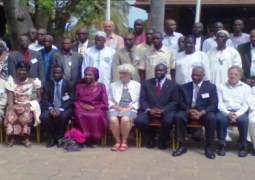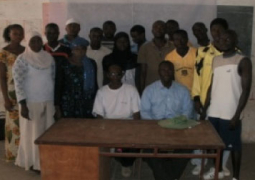
Our nation, The Gambia, which is a member of the African Commission on Human Rights, is obliged to establish a "National Human Rights Commission" that will monitor all human rights activities at the national level, and thus promote dignity and decent values to all citizens.
Most national governments have created such institutions in their efforts to help tackle human rights violations, and to also help promote human rights laws in their respective countries.
It is important to note that such institutions (HR Commission of government) will always help to enhance government policies on the rule of law and good governance in our societies.
However, a National Human Rights Commission can perform a series functions to help reduce the menace of human rights violations. Such commission can be mandated by governments to help investigate human rights violations by public and private enquires.
They should also visit and collect reports from institutions susceptible of human rights violations. But most importantly, a National Human Rights Commission is a mechanism of supervising, monitoring, investigating and reporting national human rights activities.
A National Human right Commission should be empowered to monitor the activities of securities agencies and other institutions to ensure that they comply with the basic principles of respecting the rights and dignity of individuals.
A National Human Rights Commission can also make recommendations for human rights training in the field of human rights as such would assist our security agencies to a great deal in helping to protect the rights of citizens in society.
Equally, where such commissions are established citizens can also have access to forward complaints on issues relating to human rights violations.
Moreover, such commission can assess and report on activities in our prisons and other institutions of mental health centres. They can also forward recommendations to the government so as to improve the conditions and working activities of these institutions.
In addition, a National Human Rights Commission will help a great deal in ensuring that our national obligations on human rights laws are implemented since the greatest problems faced by national government's failure or reluctant to implement their human rights treaty obligations. Such a commission may also oversee human rights programmes in the country, and can also be tasked with supervising issues of disability rights, women rights children rights, etc.
It is only institutions, such as a National Human Rights Commission that can help in reducing violations in our communities today, as most governments have created such institutions to enhance good governance in their respective countries and making human rights a priority.
Moreover, governments that are interested in prohibiting human rights violations have legislated considerable laws to enhance citizen rights and duties, and also by taking into account that rule of law and respect for human rights laws are fundamental ideals in a true democracy.
It is true that governments that desired their societies to live in lasting peace and civility, have nowadays engaged in rebuilding structures that enhance the rule of law and respect of human rights for peace and stability.




